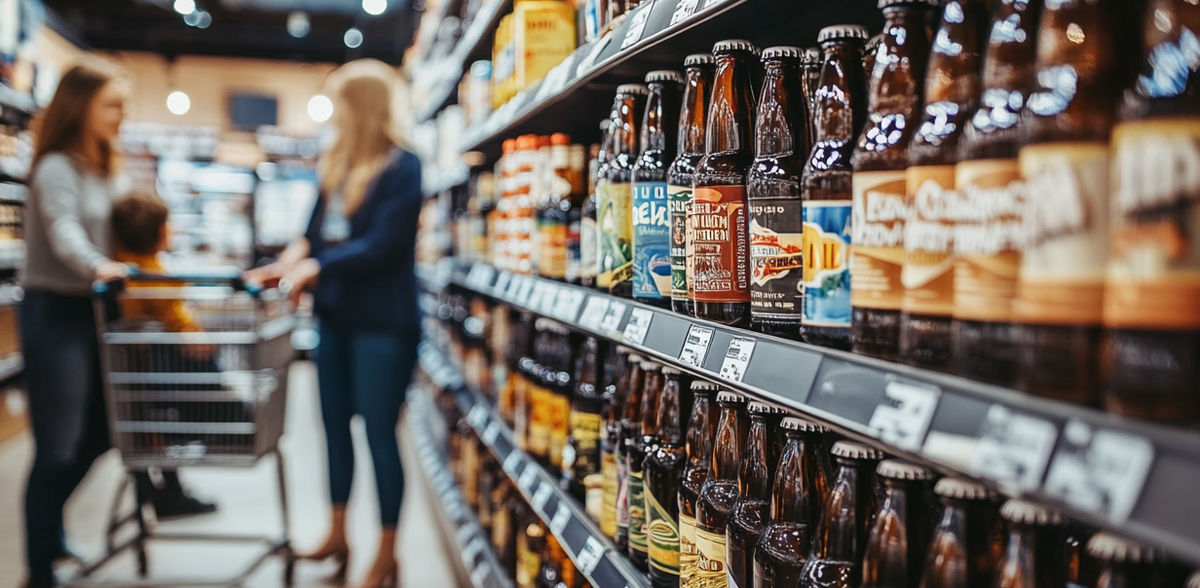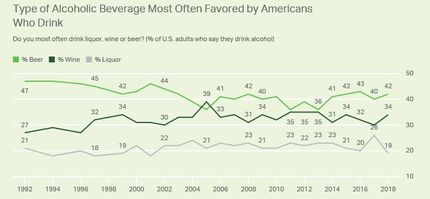Beer helps grocery stores tap sales in other categories
When a grocery store starts selling beer, its sales grow beyond just six-packs and cases: Households, and beer-purchasing households in particular, visit the store more frequently and increase their total monthly grocery expenditures, according to new Cornell research.
The finding has important implications for the intensely competitive grocery business, which operates on razor-thin profit margins between 1 and 3%, well below other retail sectors. One approach to boosting profits is employing “loss leaders,” specific products sold below cost to attract customers to a store and encourage them to buy other, more profitable items. Another strategy is focusing on “destination categories,” product categories so important that customers will resolutely choose a particular store to purchase them, making them the main reason consumers visit the store.
But do these destination categories really drive sales? The question is hard to study because supermarkets rarely make sweeping category changes.
However, new research published in in the American Journal of Agricultural Economics, takes advantage of Colorado’s changing laws on beer sales to prove that beer does in fact drive people to a store, while also increasing sales in other categories including snacks, cheese, deli meat, and soda.
“Our results show that the relaxation of laws that would allow alcoholic beverages to be sold in grocery stores can lead to fundamental changes in how people shop, where they shop and what they buy,” said Bradley J. Rickard, professor of food and agricultural economics Cornell University.
Using nationally representative data at the store level and at the household level, the authors found that the introduction of beer into grocery stores in Colorado – which started allowing grocery stores to sell full-strength beer in 2019 – led to a net increase in total sales, and a relative increase in expenditures for some complementary categories.
The study found that beer-purchasing households visited a grocery store 3.6% more often and increased their grocery store expenditures by 8% per month. Focusing on the top 10 categories in shoppers’ grocery baskets, the researchers found that consumers increased their spending on related categories (items they described as likely to be purchased with beer, such as fresh produce, snacks, cheese, deli products and soda) by 17%. This is good news for grocers but has broader implications, Rickard said.
“In recent years, the trend has been to privatize alcohol sales, moving beer into grocery stores, often followed by wine and liquor,” Rickard said. For instance, he says as of this year, 42 states and Washington, D.C., allow wine sales in grocery stores. The remaining states, including New York, do not.
The expansion of alcohol sales in grocery and convenience stores is a debate with important considerations on both sides, Rickard says. While grocery stores want to sell beer and wine and liquor, temperance groups and lobbies representing wine and liquor store owners are fighting to keep these products out of supermarkets and convenience stores.
This has been a perennial issue in the state of New York, Rickard said, with some people saying they’d like to see wine sales in grocery stores, and that it might help the burgeoning wine industry in the state. While owners of the state’s wine and spirit shops, which require a special license, say it would kill hundreds of small businesses and would not benefit local wineries.
“There has been a cultural change in U.S. alcohol policy concerning where and when alcoholic beverages can be sold, with regulatory change looming for years,” he said.
Most read news
Organizations
Other news from the department science

Get the food & beverage industry in your inbox
By submitting this form you agree that LUMITOS AG will send you the newsletter(s) selected above by email. Your data will not be passed on to third parties. Your data will be stored and processed in accordance with our data protection regulations. LUMITOS may contact you by email for the purpose of advertising or market and opinion surveys. You can revoke your consent at any time without giving reasons to LUMITOS AG, Ernst-Augustin-Str. 2, 12489 Berlin, Germany or by e-mail at revoke@lumitos.com with effect for the future. In addition, each email contains a link to unsubscribe from the corresponding newsletter.






























































